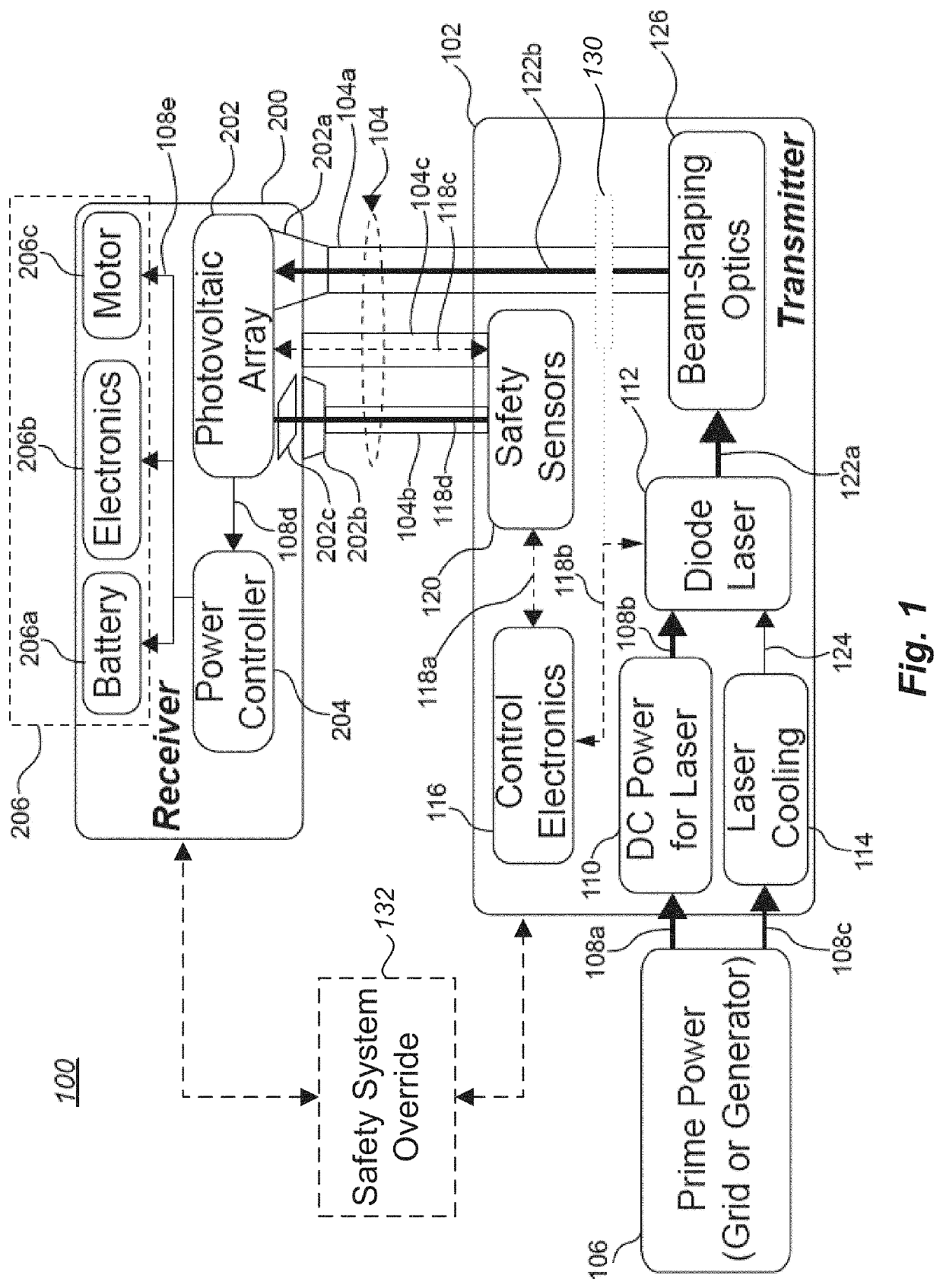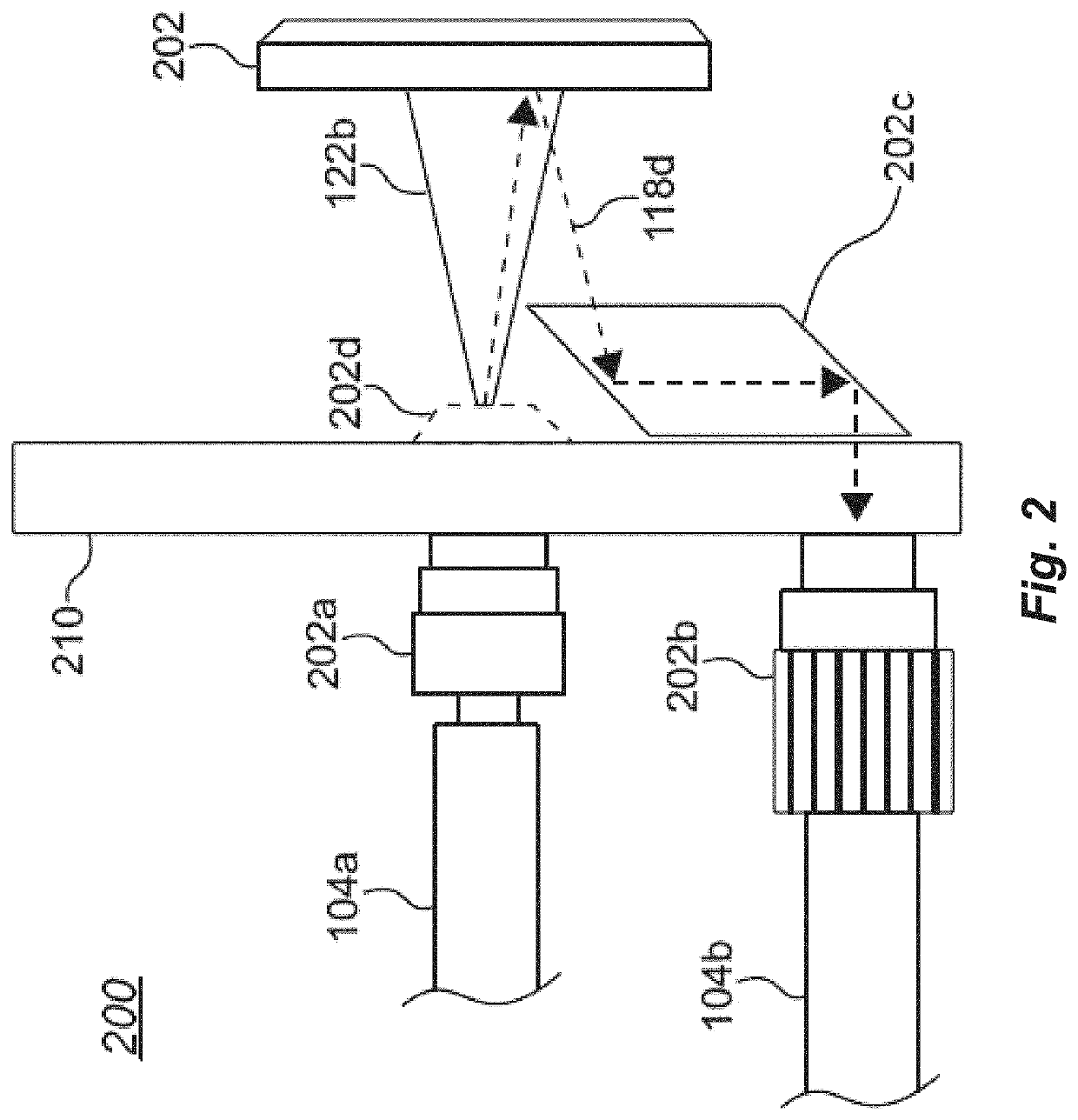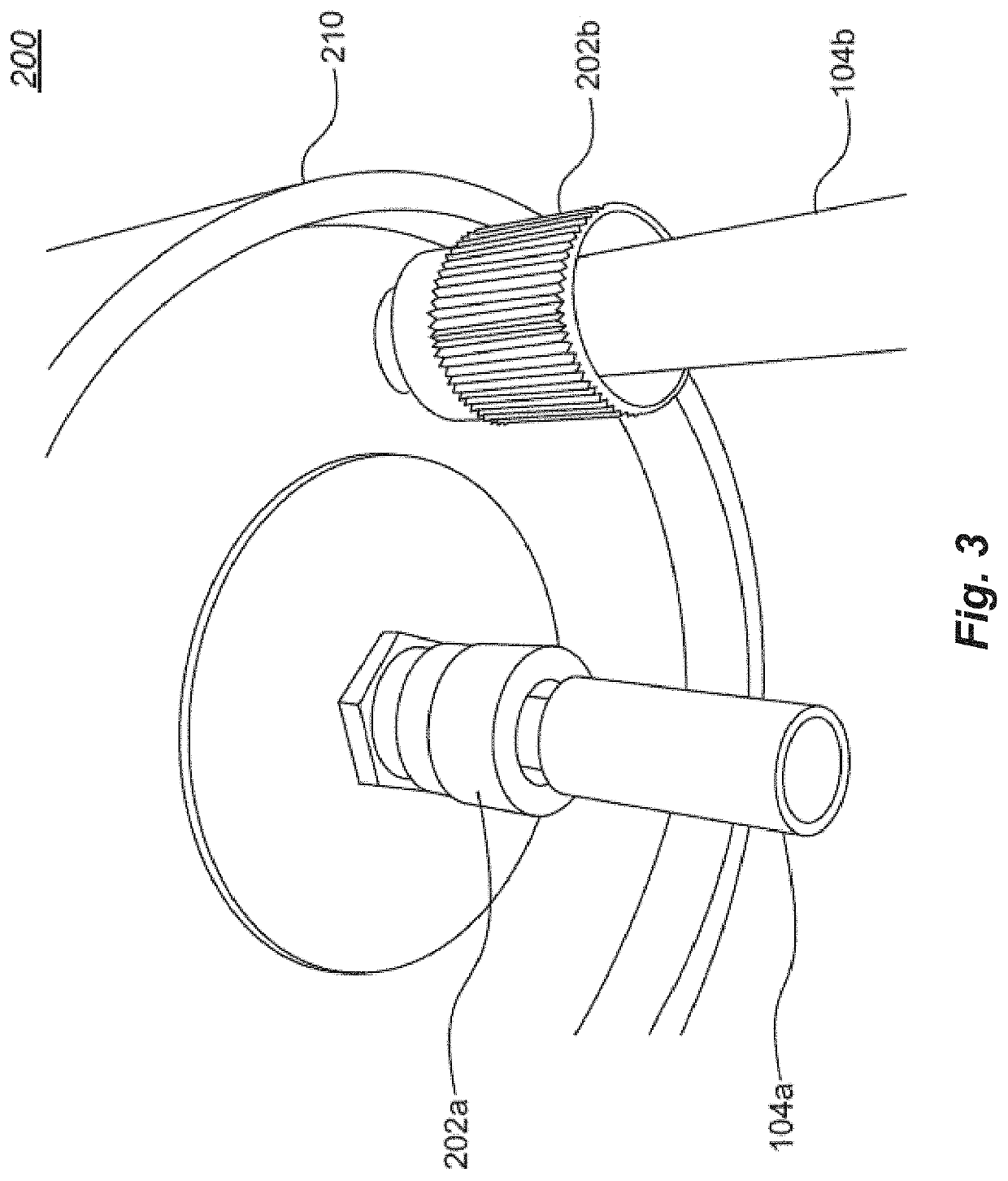Power-over-fiber safety system
a safety system and power-over-fiber technology, applied in the field of optical fiber-based safety systems, can solve the problems of people or animals being exposed to high-flux energy, being injured by high-flux energy, and certain power-over-fiber systems are not as safe, so as to limit the scope of the claimed subject matter
- Summary
- Abstract
- Description
- Claims
- Application Information
AI Technical Summary
Benefits of technology
Problems solved by technology
Method used
Image
Examples
Embodiment Construction
[0039]Power-over-fiber (PoF) systems generally include a high-flux electromagnetic energy transmitter (e.g., a laser light source) and an electromagnetic energy receiver coupled together by a fiber-based conduit (e.g., a fiber optic cable). Light from the high-flux electromagnetic energy transmitter passes through the fiber-based conduit to the electromagnetic energy receiver, and the electromagnetic energy receiver converts the received light into electricity. In many cases, a laser-based system in the electromagnetic energy transmitter generates the high-flux light, and a photovoltaic array in the electromagnetic energy receiver converts the received light into electricity.
[0040]It has been recognized by the inventor that in particular circumstances of PoF systems, improvements in safety may be achieved when a portion of the high-flux light passed from the high-flux electromagnetic energy transmitter is used to control certain operations of the high-flux electromagnetic energy tra...
PUM
 Login to View More
Login to View More Abstract
Description
Claims
Application Information
 Login to View More
Login to View More - R&D
- Intellectual Property
- Life Sciences
- Materials
- Tech Scout
- Unparalleled Data Quality
- Higher Quality Content
- 60% Fewer Hallucinations
Browse by: Latest US Patents, China's latest patents, Technical Efficacy Thesaurus, Application Domain, Technology Topic, Popular Technical Reports.
© 2025 PatSnap. All rights reserved.Legal|Privacy policy|Modern Slavery Act Transparency Statement|Sitemap|About US| Contact US: help@patsnap.com



